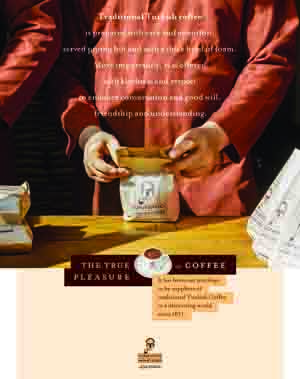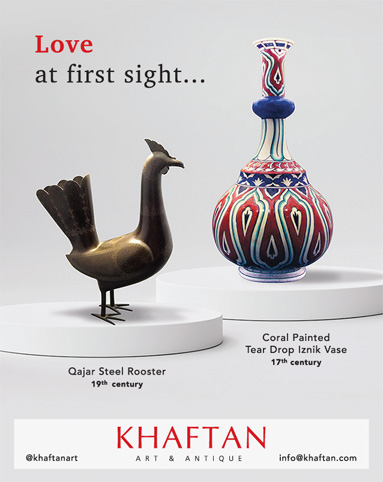The countdown has begun for this year’s İKSV Music Festival, which is to begin on June 6. Classical music enthusiasts may have already read my piece on this subject in the latest edition of Cornucopia, but a gentle reminder may be necessary. I need to make it clear at the outset that in view of current circumstances, we are privileged to have a music festival of this kind organised for us. So, much credit is due to the IKSV, the Istanbul Foundation for Culture and the Arts, for keeping our musical airways open at this difficult time, and for allowing us to breathe in some sound-scented air. Among the many talents in this years festival is the German-Japanese pianist Alice Sara Ott (photo: Pascal_Albandopulos), who combines Chopin with Ligeti, Arvo Pärt and her own composition, Lullaby to Eternity, in an intriguing recital on June 16 (see below).
The opening concert on Monday, June 6 is to take place in the newly-opened Türk Telekom Opera Hall at the Atatürk Cultural Centre in Taksim Square. Starting time: 8 pm. The Tekfen Philharmonic Orchestra, conducted by Aziz Shokhakimov, will be accompanying Russian-American pianist Kirill Gerstein in Tchaikovsky’s Piano Concerto No. 1. Also on the programme are Ferit Tüzün’s Humoresque, inspired by Nasreddin Hodja, and Bernstein’s West Side Story.
Kirill Gerstein is a Russian-Jewish pianist – a Scorpio born in Voronezh in 1979 – who is now an American citizen; he currently resides in Berlin. Here he is in Brahms’ Piano Concerto No. 1, accompanied by the Gürzenich-Orchester Köln under the baton of François-Xavier Roth:
Before the music begins, the usual speechifying and prize-giving will take place; this year, the Honour Award is to be given to the composer Özkan Manav, who comes from Mersin. Here are two works by him in vastly contrasting styles – first, Haydar Haydar, performed in Ankara by the London Philharmonic Orchestra conducted by Robin Ticciati:
Now, his Countryside Landscapes: Winter for Strings, a much more modern work with lots of cold shivers. Don’t listen while you’re driving, or the sudden discord at 05:42 may make you slam your foot on the brakes unintentionally. If you feel like screaming, however, the section that begins here might make an entirely appropriate accompaniment:
The following day (Tuesday, June 7, at 8 pm), Fazıl Say, accompanied by the Bilkent Symphony Orchestra (conductor: Can Okan) is to play Schumann’s Piano Concerto in A minor, followed by some works of his own. In one of these (Portraits), Mr. Say will be joined by flautist Bülent Evcil; also on the menu is his Istanbul Symphony. Between 6:30 and 7:30 there will be a talk or talks (in Turkish) by Mr Aydın Büke and Ms Zeynep Oral on the subject of the İKSV Festival’s 50th anniversary, which is being celebrated this year.
I now find myself in an unusual situation – that of listing a performance I have not listened to. (The reason is my ignoble, and as yet unconquerable, aversion to Mr. Say’s compositions, of course; readers of this blog will be aware of my weakness in this regard.) But anyway, here goes. As a special concession to Fazıl Say fans, here is his Istanbul Symphony (Symphony No. 1) played by the hr-sinfonieorchester (i.e., the Frankfurt Radio Symphony Orchestra), conducted by Howard Griffiths:
On Wednesday, June 8, at 8 pm, the Borusan Quartet will be performing at the Süreyya Opera House in Kadıköy with French harpist Xavier de Maistre. Their programme includes a harp concerto by the French composer François-Adrien Boieldieu (1775–1834) that is described by Wikipedia as ‘one of the masterpieces of the harp repertory’. This will be followed by Debussy’s Danse sacrée et danse profane (what else?) and Tchaikovsky’s String Quartet No. 3. As a taster for the Tchaikovsky quartet, written in 1876 (the year he finished Swan Lake), here is a performance by the Borodin Quartet. Don’t miss the third movement, a grief-laden elegy for the composer’s violinist friend Ferdinand Laub; it starts at 19:26. The first movement isn’t all sweetness and light, either: it sets the tone of grimness that pervades the work until the last movement. After all, E flat minor is never the cheeriest of keys. The programme notes by James Reel, available on YouTube, are particularly instructive:
Thursday, June 9 (starting time: 8 pm) sees the Deutsches Symphonie-Orchester Berlin, conducted by Giovanni Antonini, accompany Austrian lyric soprano Anna Prohaska in a programme of arias by Mozart and Haydn. These will be preceded Beethoven’s 1801 Overture to The Creatures of Prometheus, the composer’s only full-length ballet, and are followed by his Symphony No. 2. Frankly, I had never heard of The Creatures of Prometheus, but here it is in a performance by the Georgian Sinfonietta (meaning the country of Georgia, not the state or the period), conducted by Markus Poschner:
As for Beethoven’s Symphony No. 2, after its first performance in Vienna in 1803 the critic for the Zeitung fuer die elegante Welt (‘Newspaper for the Elegant World’) famously wrote that it was ‘a hideously writhing, wounded dragon that refuses to die, but writhing in its last agonies and, in the fourth movement, bleeding to death.’ It was probably the cheeky, syncopated Scherzo that sent him a bad trip, but even so, I feel his judgement erred a little on the side of harshness. Just a little.
The venue for a concert of Turkish classical music on Friday, June 10, at 9 pm is the 5th-century Cistern of Theodosius (Şerefiye Sarnıcı) between Sultanahmet and Çemberlitaş. Singer Çağlar Fidan, kanun-player Asineth Fotini Kokkala and Nikos Papageorgiou on tambur and lavta will be presenting a programme of works by Ottoman composers of the 16th and 17th centuries. (The kanun, by the way, is a Turkish version of the zither, while a tambur is a Turkish stringed instrument with a small, round body that was traditionally plucked until the famous virtuoso Tamburî Cemil Bey (1873-1916) came along and played it with a bow. The lavta is a Turkish version of the lute.)
The first of the Weekend Classics (Hafta Sonu Klâsikleri) concerts, which take place in the open air for the convenience of families with children, is to be given by the Boğaziçi Gençlik Korosu (‘Bosphorus Youth Chorus’), conducted by Masis Aram Gözmek, on Saturday June 11. The venue: Fenerbahçe Park.
STOP PRESS:
News has reached me of a concert to be given independently of the İKSV Music Festival. On Saturday, June 11, at 8 pm, the Istanbul State Symphony Orchestra (İstanbul Devlet Senfoni Orkestrası) under conductor Naci Özgüç is to give a concert at the Atatürk Cultural Centre that will begin with İlyas Mirzayev’s symphonic poem Gülbaba, written to commemorate a legendary dervish who is said to have been killed during the siege of Budin (aka Buda, in Hungary) in 1541. This will be the piece’s Istanbul premiere; its first performance took place in Ankara, where it was played by the Presidential Symphony Orchestra. İlyas Mirzayev is an Azeri composer, trained at the conservatoires in Baku and Moscow, who is also known for the recitals he gives accompanying the ney-player Ercan Irmak on the piano. Orchestration is Mr Mirzayev’s strong suit (his teachers included Alfred Schnittke), and I believe that in Gülbaba there is a variety of subtle timbres; also, the trombones get to bust their guts with some rip-roaring glissandi. The concert will continue with operatic arias sung by soprano Otilia İpek and tenor Caner Akın; in the second half, meanwhile, we will hear Moscow-trained pianist Gökhan Aybulus play the solo part in Liszt’s Piano Concerto No. 2.
THE İKSV MUSIC FESTIVAL, CONTINUED
On Sunday, June 12 there will be a concert by the Presidential Symphony Orchestra (Cumhurbaşkanlığı Senfoni Orkestrası) – conducted by Cem-i Can Deliorman – and French cellist Gautier Capuçon. After Enstantaneler, a piece by the Turkish composer Cemal Reşit Rey, Mr. Capuçon will play Elgar’s Cello Concerto. In the second half, the orchestra will play Dvořák’s 9th Symphony, the ‘New World’. Between 6:30 and 7:30 there will be a talk (or talks) in Turkish on Cemal Reşit Rey by Ms Evin İlyasoğlu and Prof Ertuğrul Sevsay. The concert will then begin at 8 pm.
Time to honour famous women: here is Jacqueline du Pré (1945–1987) in what looks like a 1960s performance of the Elgar concerto, conducted by a youthful Daniel Barenboim; the two married in 1967. Knowing what happened to the poor girl later in life (her career was interrupted by multiple sclerosis when she was only 28, and she died at 42), this one brings tears to my eyes:
The following day (Monday, June 13, at 8 pm) there is to be a concert of Turkish songs written in honour of Istanbul: the gig is entitled ‘Ey Güzel İstanbul, Benim Sevgili Yarım’ (‘O Beautiful Istanbul, My Darling Lover’), and the venue is to be the Fıstıklı Teras at the Sakıp Sabancı Museum in Emirgan. With a view over the Bosphorus of that magnitude, what better setting could there possibly be?
On Tuesday, June 14, at 8 pm, cellist Anastasia Kobekina is to perform Haydn’s Cello Concerto No. 1 and two works by Tchaikovsky – his Nocturne for Cello and String Orchestra and his Pezzo Capriccioso for cello and orchestra – with the Amsterdam Sinfonietta (conducted by Candida Thompson) at the Cemal Reşit Rey Concert Hall in Harbiye. The concert will begin with the Turkish premiere of Shanty – Over the Sea by the British composer, pianist and conductor Thomas Adès. The Shanty is described by Tim Ashley in The Guardian as ‘a hypnotic, captivating piece in which a timeless melody drifts in and out of focus ...’. It is no coincidence, I feel, that Mr Adès was born under the sign of Pisces, a misty, mystical sign ruled by the sea-god Neptune. This will be followed by William Walton’s Sonata for Strings (1971). Note that this concert replaces the previously-scheduled one by pianist Valentina Lisitsa.
Alice Sara Ott is a pianist of mixed Japanese and German parentage who became famous at an early age, beginning her career with an appearance in Munich when she was 5. On Thursday, June 16 at 9 pm she will be giving a recital at the Cemal Reşit Rey Concert Hall to which she has given the title ‘Echoes of Life’ (‘Yaşamdan Yansımalar’). Her programme is an interesting one: sandwiched between groups of Chopin’s 24 Preludes, Op. 28, will be much more modern pieces by the likes of György Ligeti and Arvo Pärt. The whole thing will end with Ms Ott’s own composition ‘Lullaby to Eternity’. If originality is what you’re looking for, this concert should fill the bill.
Here is a sizzling performance of the Chopin Preludes by Grigory Sokolov, a pianist I listen to almost every day:
A classical music festival cannot, of course, remain without something a tad beyond the banks of the mainstream: on Friday, June 17 at 8 pm, the Kinan Azmeh Cityband, led by clarinettist Kinan Azmeh, is to perform at the Tophane-i Amire Culture and Arts Centre. (For those who don’t know, Tophane is the first stop after Karaköy when you’re coming on the tram from Sultanahmet and Sirkeci towards the terminus at Kabataş.) Their website yields the following information: ‘With this New York ensemble, Azmeh strives to reach a balance between classical music, jazz, and the music of his homeland, Syria.’
Sunday, June 19, is the day of the traditional Müzik Rotası, a walkabout in which concerts are held in a number of interesting venues one after the other; the concerts are timed to allow the audience to walk from place to place. This year the location is to be Kadıköy (starting times: ‘12:00 and 13:00’), and the event is to be divided between the Yeldeğirmeni Arts Centre (Yeldeğirmeni Sanat Merkezi), the Hemdat Israel Synagogue and the neo-Byzantine and neo-Renaissance Aya Triada (‘Holy Trinity’) Greek Orthodox Church.
The Yeldeğirmeni (‘Windmill’) area was the first part of Kadıköy to be developed in the 18th and 19th centuries: four windmills were constructed there during the reign of Abdülhamid I (1774–89), and Kadıköy’s first post office was opened there in 1845. The area still has quite a few interesting buildings, including some constructed for the German engineers working on Haydarpaşa station. The Aya Triada Church, meanwhile, is home to an ayazma (sacred spring) dedicated to St Catherine of Alexandria, after whom the famous monastery at the foot of Mount Sinai is named.
In the evening of Sunday, June 19 (at 9 pm) there is to be a concert at the Saint-Esprit Cathedral within the Notre Dame de Sion French school in Harbiye. The cathedral, designed by the Swiss-Italian architect Gaspard Fossati, was built in 1845–46, and the concert (entitled Yıldızlarla Oda Müziği – ‘Chamber Music with Stars’) features guitarist Miloš Karadaglic and clarinettist Andreas Ottensamer in works by Fernando Sor, Bach, Albéniz, Astor Piazzolla and Villa-Lobos.
The following day, Monday, June 20 (at 9 pm), the Palais de France (Fransız Sarayı, the French Consulate and Ambassadorial Residence in Nuru Ziya Sokak, Beyoğlu) is to host a concert entitled ‘Mare Nostrum’. All the works on the programme will be by the musicians themselves – accordion-player Richard Galliano, trumpeter Paolo Fresu and pianist Jan Lundgren. The Palais de France was designed by the architect Pierre Laurécisque and completed in 1847; both it and the garden around it are said to enjoy superb views over the Bosphorus. (There is a fine article by Patricia Daunt in Cornucopia No 5, with superb photographs of the palace by Fritz von der Schulenburg, which is included in her book The Palace Lady's Summerhouse.)
I will now quote directly from my piece in Cornucopia. Cheating, I know, but I was ever a shameless plagiarist. ‘The last major event of the İKSV Festival will be a concert by the Borusan Istanbul Philharmonic Orchestra, conducted by Chinese-born American composer Tan Dun, at 8 pm on Wednesday June 22. Apart from two works by Stravinsky (Feu d’artifice and his Firebird Suite), there will also be performances of two pieces by Tan Dun himself. I personally find his approach to modern music, especially to the creative use of instruments, extremely refreshing. His Wikipedia entry yields the information that Mr Dun was born in a village in Hunan Province. ‘As a child, he was fascinated by the rituals and ceremonies of the village shaman, which were typically made with natural objects such as rocks and water. Owing to the bans enacted during the Cultural Revolution, he was discouraged from pursuing music, and was sent to work as a rice planter. He joined an ensemble of other commune residents and learned to play traditional Chinese string instruments.’ Hardly a promising start to a musical career, but the Muses must have marked his card from the word go.’
The works by Tan Dun are in fact his Double Concerto for violin, piano, string orchestra and percussion, and his Passacaglia: Secret of Wind and Birds. Should be fun. Here is a performance by the National Youth Orchestra of the United States of America, conducted by Charles Dutoit.
The İKSV has just announced the programme for its Jazz Festival, and I will no doubt have something to say on that subject ‘in due course’. For the moment, here is a link to the İKSV Classical Music Festival programme:

_Pascal_Albandopulos_seçili_sm_567_851_85.jpg)







